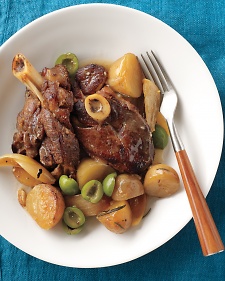Let’s Start Here
Wow. Ten days since I posted. Sorry, you 336 Unique Visitors from last week! I promise to make it up to you.
Thing is, I have three drafts in the pile. It’s been that kind of ten days.
At the moment, I also have a lamb stew in the oven. One based on a picture my daughter Azalea liked the looks of and has been asking me to make. So this morning, trying to cheer her up from life, I said, well, tonight we’re going that have that lamb stew you’ve been wanting!
“I don’t care,” she said.
See what I mean? That kind of ten days.
The other thing is, I want to dive into the Joko book. I have all these big ideas of starting over, and bringing it back to life that way. But it’s not happening, so I am going to back out of my own plan and just post, in little chunks, my introduction, as it stands now. And then see what happens.
INTRODUCTION to Who I am Right Now
Aren’t You Lucky? The Practice of Divine Disappointment
Lost in a hell realm of obsessive thought about a totally out-of-control, abusive relationship that had been going on for over a year, I wandered into a bookstore on the Upper West Side of Manhattan and found myself standing in the self-help section, knowing that I had hit bottom. As if my life weren’t pathetic enough, the way I longed for this—shall we say—unsuitable man (who was over me, except for when he wasn’t) 24-hours a day; I was also losing friends, flailing at my job of teaching college writing, and becoming more and more withdrawn, freaked out, and suicidal. And the fact that I, a young, feminist, arrogant, wanna-be intellectual who had always turned to “real books” for insight of all kinds, was seeking the lame, false promises of “healing” through self-help was tantamount to throwing in the towel for good, a cosmic you win to the stupid and childish universe, a complete surrender to whatever demon was clearly determined to take away any shred of dignity I had left.
It was, in other words, my lucky day.
Standing there before the sea of lavender book spines, I glanced to my left, and saw a book face-out on one of the Eastern Thought shelves (this was in the 1990’s when books on Buddhism were still housed with all things not Christian). This one was so lovely, so white, with small purple flowers, feminine, but understated. My draw to that book was so automatic that, in my mind, my arms are outstretched and my eyes are rolled back in my head as I lurch toward the shelf in stiff, long strides. When I got there I read the words on the cover: Nothing Special, Living Zen, by Charlotte Joko Beck.
Sitting down with the book, I opened to the first chapter called “Whirlpools and Stagnant Waters,” and read this:
We are rather like whirlpools in the river of life. In flowing forward, a river or stream may hit rocks, branches, irregularities in the ground, causing whirlpools to spring spontaneously here and there. Water entering one whirlpool quickly passes through and rejoins the river, eventually joining another whirlpool and moving on. Though for short periods it seems to be distinguishable as a separate event, the water in the whirlpools is just the river itself….
Ninety percent of a typical human life is spent trying to put boundaries around the whirlpool. We’re constantly on guard: “He might hurt me.” “This might go wrong.” “I don’t like him anyway.” This is a complete misuse of our life function; yet we all do it to some degree.
I had never in my life considered a spiritual solution to any problem. And yet, as I sat on the taut pillow of one of those corporate overstuffed chairs beneath me, reading my first words of Zen, and as I looked out at the other people walking across the carpeted floor beneath the fluorescent lights of the windowless room, I felt a rush of relief, as if my breath were getting knocked into me. I was that rushing, crazy, dangerous river. And I knew that somewhere in those frightening waters I could find the strength to withstand what I had to withstand to free myself not only from this particular man, but from all the ideas about who I thought I was, and the underlying fear of being alone, and of being, fundamentally, unlovable. In other words, in an instant I saw how to let go of myself and to be filled with everything else.
As big as it was, there is no way I could have known in that moment how totally my life would become oriented toward Zen practice—a traditionally male, solitary, monastic practice with long hours of silent, still meditation at its heart. I had lots of questions about the world, about what it means to be human, about the actual viscera of a feeling, but I had no idea there was a religion devoted to getting to the bottom of such big questions. Or how profoundly I would be affected by the white-haired lady named Charlotte Joko Beck from the back of the book.
(to be continued…..)

